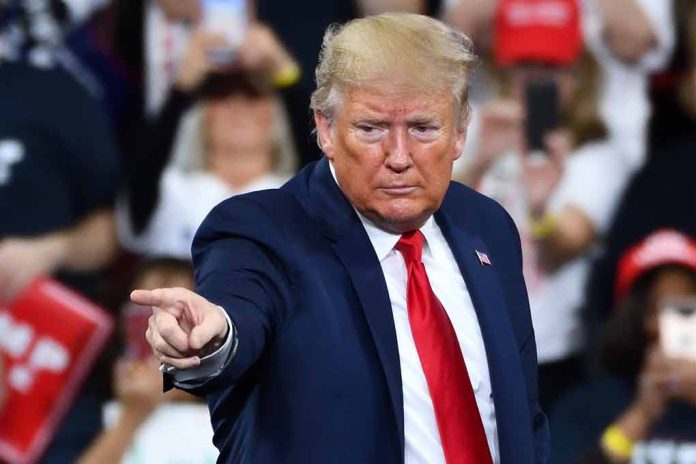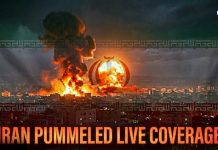
President Trump revokes security clearances of 51 intelligence officials over Hunter Biden laptop controversy, signaling a major shift in the intelligence community.
Key Takeaways
- Trump revokes security clearances of 51 former intelligence officials who signed a 2020 letter suggesting Hunter Biden’s laptop was part of a Russian disinformation operation.
- Many affected officials are retired and no longer hold active clearances, potentially limiting the impact of Trump’s decision.
- The move is seen as Trump’s attempt to address perceived threats and opposition within the intelligence community.
- Legal challenges are anticipated, with potential for a class-action suit from affected ex-officials.
- The action was part of over 200 executive orders Trump signed on Inauguration Day, demonstrating his “promises made, promises kept” approach.
Trump Takes Swift Action Against Former Intelligence Officials
In a bold move on his first day back in office, President Donald Trump has revoked the security clearances of 51 former intelligence officials who signed a letter in 2020 suggesting that Hunter Biden’s laptop was part of a Russian disinformation operation. This action targets prominent figures including James Clapper Jr., John Brennan, Leon Panetta, and John Bolton, among others.
The controversial letter, which was signed just weeks before the 2020 election, cast doubt on the authenticity of emails published by The New York Post. These emails suggested that Hunter Biden had arranged a meeting between his father, then-candidate Joe Biden, and an executive from the Ukrainian energy company Burisma. Trump’s decision to revoke these clearances comes as part of a broader strategy to address what he perceives as opposition within the intelligence community.
Implications and Reactions
While Trump’s action sends a strong message, its practical impact may be limited. Many of the targeted officials are retired and no longer hold active security clearances. However, the move has sparked debate about the use of presidential authority in matters of national security.
“The president has a lot of authority when it comes to security clearances. The problem the White House will run into is, if they depart from their existing procedures, they could set up a judicial appeal for these 51 people—and it will probably be a class-action suit since they’re all in alike or similar circumstances,” said Washington lawyer Dan Meyer, an expert in the security clearances and background check process.
Legal experts anticipate challenges to Trump’s order, with some affected officials potentially pursuing a class-action lawsuit. Mark Zaid, an attorney representing some of the signatories, has indicated his readiness to sue if his clients wish to contest the order.
The Broader Context
This action is part of Trump’s larger strategy to demonstrate swift and decisive leadership upon returning to office. On Inauguration Day, he signed over 200 executive orders, addressing various issues from climate policy to federal governance.
“I will act with historic speed and strength and fix every single crisis facing our country,” Trump said.
Trump’s supporters view these actions as fulfilling campaign promises and addressing perceived threats to national security. Critics, however, argue that the revocation of security clearances is largely symbolic and potentially sets a dangerous precedent for politicizing intelligence matters.
The Hunter Biden Laptop Controversy
The controversy at the heart of this issue stems from a 2020 New York Post report on emails found on Hunter Biden’s laptop. These emails suggested potential improprieties involving then-candidate Joe Biden and his son’s business dealings. The letter signed by the 51 intelligence officials claimed the story had “all the classic earmarks of a Russian information operation,” though they acknowledged they had no evidence to support this claim.
Subsequent investigations, including those by Trump’s own Director of National Intelligence John Ratcliffe and the FBI, found no evidence of Russian involvement in the laptop story. The Department of Justice later confirmed that the laptop contained “reliable evidence,” contradicting the initial assertions made in the letter.
Looking Ahead
As the dust settles on this controversial decision, the focus now turns to its potential long-term impacts on the intelligence community and the precedent it may set for future administrations. While Trump’s supporters hail this as a necessary step to address perceived politicization within intelligence agencies, others worry about the implications for national security and the independence of intelligence professionals.
The coming weeks will likely see legal challenges and continued debate over the balance between presidential authority and the integrity of the intelligence community. As always, the American public will be watching closely to see how this latest chapter in the ongoing saga of national security and political accountability unfolds.
Sources:
- https://www.axios.com/2025/01/20/trump-revoke-security-clearances-intelligence-officials
- https://m.economictimes.com/news/international/us/donald-trumps-executive-move-reverses-security-clearances-of-former-officials-who-signed-hunter-biden-laptop-letter-will-joe-bidens-son-go-to-jail/articleshow/117428829.cms
- https://apnews.com/article/trump-intelligence-hunter-biden-laptop-9d49578c70e3de03e628d0d0cf6592f0
- https://www.foxnews.com/politics/trump-revokes-security-clearances-51-intel-officials-signed-discredited-hunter-biden-laptop-letter



